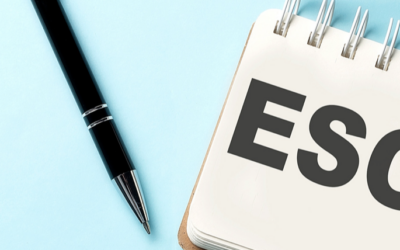How to take control of your life using lists.
Everyone knows that the human brain processes more information than our most advanced computers to date1. Trying to remember what you need to buy from the store, your password for your work computer, or what your patient ate for breakfast, can feel like an uphill battle in today’s get-up-and-go society. Everything you do or need to do, can contribute to your stress levels and seeing how April is the official month for Stress Awareness, we wanted to introduce you to the revolutionary idea of list-making. I know, I know, lists are not new, but they are a great tool to help ease the stress of “getting it done” and may also help recall that task later.
Lists don’t need to be limited to only overly ambitious goals (e.g., get married, have a great paying job). You can focus on simple tasks that will make your day to day life more comfortable, such as washing your dishes daily or grocery lists. All that matters is that you are getting what you need out of the lists that you create.
Choose tasks or goals that bring you joy
A list that has a few tasks or goals that bring you joy can be a great way to start with because they are, well, easy to do. And when you have a list that is easy to accomplish, you are much more likely to continue to use lists to help organize, and bring joy, to your life2.
Just remember that you do not need to limit yourself to what you think would make you the most successful in society’s eyes or what other people want you to do. Instead, focus on those actions which allow you to be your most authentic self, and happiness is sure to follow.
Remembering the past
Lists are not just for today and tomorrow; lists can also be used to transport you to another period in your life, just like a diary. Also, the mere act of creating a list can help you remember, meaning your most treasured memories can be “stored” in lists, it’s kind of like a backup plan for your brain.
Although research3 shows that people who write by hand are more likely to recall what was written, this should not dissuade you from creating your own lists to remember special moments in your life. You can also get your whole family involved. Abundantmama.com has some wonderful ideas for the types of memories you might want to “store,” such as adventures, silly songs your family sings, or even family firsts. Lists, memory jars, journals, are all great ways to help extend your brain’s ability to recall your most precious memories.
Conquering your fears
Lists can do a great many things, including conquering your fears4. Maybe you are scared to sing in front of strangers, or you are too frightened to travel to a foreign country. Fears can hold us back and keep us from having a fulfilling life. Conquering your fears may seem like a daunting task, but if you start small, you could eventually reach your goal. For instance, if your fear is to sing in public, maybe try singing in front of someone you really trust. If you work at it at a pace you can handle, you can very easily get to a point where the fear is no longer there. Freeing yourself of fear can be an enriching experience.
If you are looking for inspiration for your lists, check out this article from mission.org. It has an abundance of hints and tips to get you pumped up to make your lists. There are also a variety of devices, software programs, and applications that can also help you get started, such as Cortana, the Amazon Echo, and Wunderlist. And don’t forget the tried and true method of pen and paper. No matter your method of list writing, there is no real end to what you can accomplish once you incorporate lists into your life.
References
[1] Fischetti, M. (2011, November 1). Computers versus Brains. Retrieved April 5, 2019, from https://www.scientificamerican.com/article/computers-vs-brains/
[2] Dolgoff, S. (2008, September 07). Create your happy-life list! Retrieved April 5, 2019, from https://www.self.com/story/make-a-happy-life-list
[3] Mueller, P. A., & Oppenheimer, D. M. (2014). The Pen Is Mightier Than the Keyboard: Advantages of Longhand Over Laptop Note Taking. Psychological Science, 25(6), 1159–1168. https://doi.org/10.1177/0956797614524581
[4] Barsh, J. (2011, October 05). Joanna Barsh: Battle the Giant Squid-Fear. Retrieved April 5, 2019, from https://www.themuse.com/advice/joanna-barsh-battle-the-giant-squidfear


